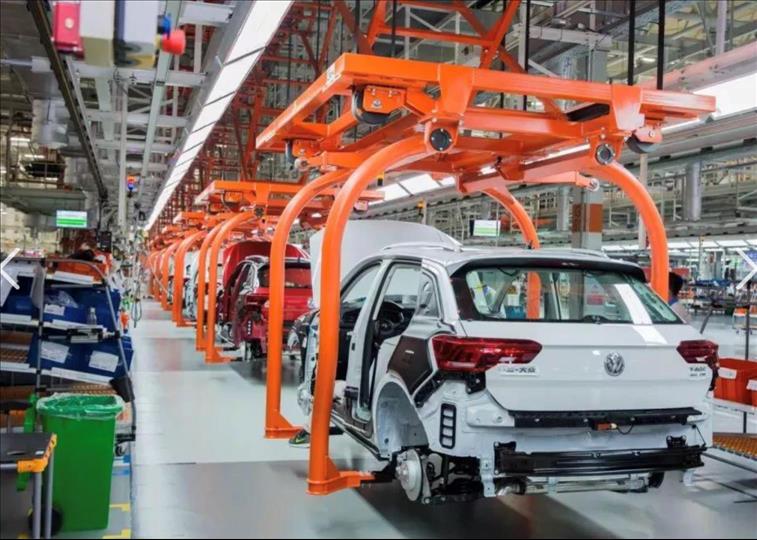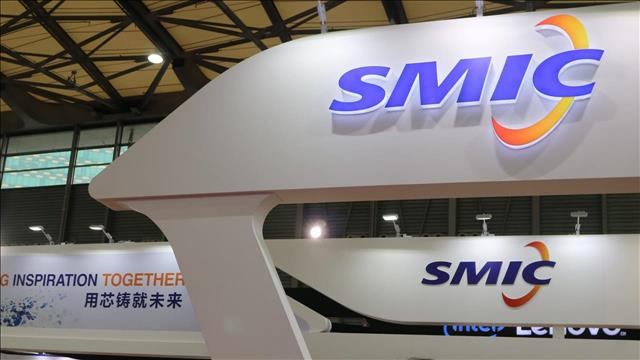(MENAFN- Asia Times) A lack of microchips has slowed the global auto sector for months and now manufacturers in China – both foreign-invested and domestic ones – are stalled as the delivery cycle of some much popular models has been postponed for as long as 50 weeks.
Citing a number of industry sources, Chinese media reported earlier this month that microcontroller units (MCU) – chips not technology-intensive that are fitted in cars from the chassis to air-conditioning systems – had become hard to source and the average time from order to delivery could be between 25 and 50 weeks.
The semi-official China Association of Automobile Manufacturers estimated that a lack of chips could drag down the total output of the country's auto sector by as many as 250,000 cars in the first quarter alone.
Chinese plants operated by Volkswagen, General Motors, Nissan and Honda have all throttled back production. Some producers like Shanghai-based upstart electric carmaker NIO reportedly halted production for five days in May and furloughed some staff indefinitely.
It was rumored that at the end of 2020, cadres with the Chinese Ministry of Industry and Information Technology (MIIT) initially thought they had been taken for a ride when they had SOS calls from automakers in Shanghai, Guangzhou, Ningbo, Wuhan and Changchun. Manufacturing across these key automotive hubs had already been hamstrung by an emerging chip shortage since the last quarter of that year.
The ministry initially thought production could be easily ratcheted up, since MCU chips, unlike the more advanced and compact CPUs and GPUs, would require less tech know-how or complex machinery to mass-produce and that indigenous alternatives from SMIC and Horizon Robotics could make up the shortfall.
In February and March, Xinhua reported that the MIIT convened several business matching symposiums pooling 59 domestic chipmakers, including SMIC and 14 state-owned and private automakers like Shanghai Automotive Industry Corp, First Automobile Works and BYD.
The hope was to form synergy and tackle the shortage. Yet the response from the chip sector has been lukewarm, even when orders from the ailing auto sector, still reeling from the coronavirus contagion that crippled their earnings last year, continued to pile up.

German auto giant VW's plant in Shanghai. Photo: Handout
The Economic Observer newspaper cited sources as saying that leading Chinese chipmakers appeared to be reluctant to heed the MIIT's call to put capacity expansion plans in gear. The broadsheet revealed that the MIIT had asked chip and integrated circuit suppliers to prioritize shipments to automakers since they also receive orders from other clients making electronic gadgets.
Liu Xiaobo, a Shenzhen-based financial commentator and a former Xinhua business reporter, told Asia Times that despite Beijing's prodding, SMIC and others were unlikely to increase their output of medium-range chips for cars as they had long realized that orders for smartphones and other electronic products would be a bulwark against uncertainties.
He said the world's demand for phones and gadgets and thus chips had soared amid reinstated lockdowns and shelter-in-place orders, but automakers had sought to cut chip orders in early 2020 amid slumping sales.
Xinhua also noted that the auto sector should expect a long turnaround as they scrambled to source chips in the current environment because they canceled orders en masse not too long ago – in the first half of 2020.
SMIC is now investing in new foundries in Shanghai and Shenzhen to churn out MCUs and other auto chips, but the company also requested local governments and their investment vehicles to chip in with capital for new plants as demand from the auto sector may still see big swings.
The Shenzhen Special Zone Daily revealed that the bulk of the future output of SMIC's new 12-inch wafer fab, being built in the southern Chinese tech hub, would initially be semiconductors built on the mature 28-nanometer process node when the plant is up and running by 2024.
Concerns, nonetheless, have been expressed by some SMIC shareholders about the continuity of the auto sector's pedal-to-the-metal sales growth for the next two years as well as looming overcapacity risks if automakers again cut their orders in the future, if sales drop again or if there are more suppliers.
SMIC's stronger rival TSMC is also building a similar facility in the eastern Chinese city of Nanjing. Observers say this project will help the Taiwan-based tech giant gain market share for mature processes and debase the domination of SMIC in this less advanced and less competitive market segment.
During TSMC's latest earnings release, chief executive CC Wei said the Nanjing plant would have an installed capacity of 20,000 wafers per month.

SMIC is one of the Chinese tech entities targeted by the US. Photo: Handout
SMIC is instead pouring much of its talent and capital into closing its gap for a production breakthrough of cutting-edge chips, like 7-nm ones, to power snappy phones and laptops to derive more profit and build its international stature.
Liu, the Shenzhen-based analyst, said Chinese automakers should chalk it up to experience and invest more in their supply chains and inventory management to stockpile vital parts and components to prepare for future problems.
Some Chinese carmakers are already rising to the chip challenge and paring to the bone the features that come with their products.
Wuling, a subsidiary of Shanghai Automotive and General Motors, launched Wuling Hongguang Mini, a compact electric convertible, late last year without even basic functionality and accessories like airbags, likely due to the lack of related chips and as a cost-saving measure.
The 28,000 yuan (US$4,347) price tag for the entry-level model still lured cost-conscious buyers and instantly made Hongguang Mini one of the fastest-selling EVs in China. Yet Wuling said in April that it had to turn away new buyers and delayed deliveries due to inadequate chips that must be installed to start the Mini's engine and manage its battery pacts.
Read more:
MENAFN13052021000159011032ID1102073395
Legal Disclaimer:
MENAFN provides the information “as is” without warranty of any kind. We do not accept any responsibility or liability for the accuracy, content, images, videos, licenses, completeness, legality, or reliability of the information contained in this article. If you have any complaints or copyright issues related to this article, kindly contact the provider above.